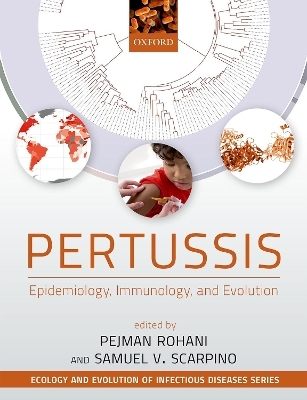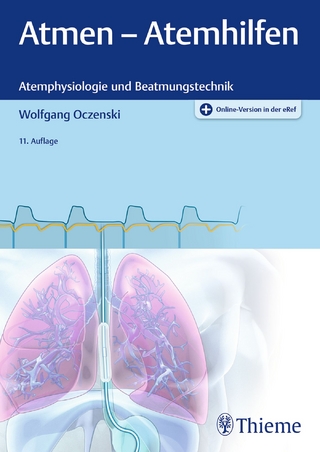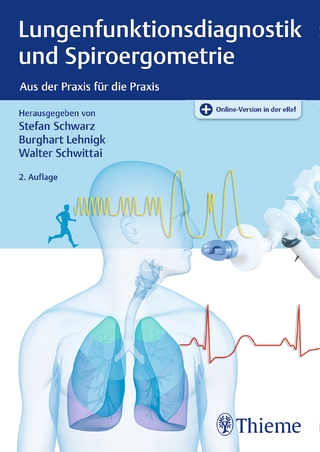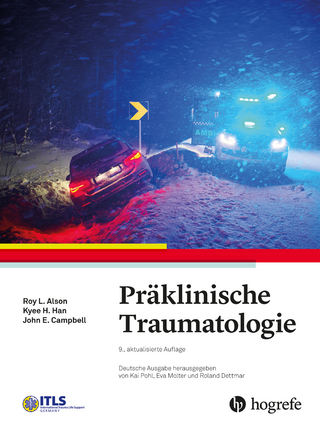
Pertussis
Oxford University Press (Verlag)
978-0-19-881187-9 (ISBN)
Pertussis, or whooping cough, is a respiratory disease caused primarily by infection with the bacterium Bordetella pertussis. It remains among the leading causes of death amongst vaccine-preventable diseases worldwide and recent years have seen its alarming re-emergence in many regions (including the U.S. and much of Europe), despite sustained high levels of vaccine coverage. The causes of the resurgence remain contentious, in part due to inherent complexities of the pathogen's biology, in part due to pronounced variation in the treatment and prevention strategies between different countries and regions, and in part due to long-standing disagreement amongst scientific researchers studying pertussis. This edited volume brings together expert knowledge from disparate fields with the overall aim of synthesizing the current understanding of this critically important, global pathogen.
Pej Rohani studies the population biology of infectious diseases, using quantitative methods. His research has focused on childhood infectious diseases, such as pertussis, measles and polio, as well as wildlife pathogen systems such as avian influenza viruses and vampire bat rabies. He has co-authored a book on modeling infectious diseases in addition to 125 peer-reviewed publications, including papers in Science, Nature, PNAS, PLoS Biology and Science Translational Medicine. He received the Guggenheim Fellowship in 2007. Dr Rohani has served on advisory panels for the World Health Organization, in addition to the Institute of Medicine's panel on the Safety Outcomes of the Childhood Immunization Schedule. He is a professor of Ecology and Infectious Diseases at the University of Georgia. Samuel V. Scarpino is a complex systems scientist investigating questions at the intersection of machine learning, network science, human behavior, and disease. His work spans a range of topics, including infectious disease modeling, non-linear forecasting, surveillance system design, and decision making under uncertainty. Dr. Scarpino's publications on Ebola, whooping cough, and influenza have been covered by the New York Times, NPR, The Economist, and the Smithsonian Magazine, among others. As a part of his research, he has developed and deployed a diverse set of public health decision support tools and does research in close association with state, national, and international public health agencies. Currently, he is an Assistant Professor of Network Science, Physics, and Marine & Environmental Sciences at Northeastern University. Sam earned his Ph.D. in integrative biology from The University of Texas at Austin and was a Santa Fe Institute Omidyar Fellow.
1: Pejman Rohani and Samuel V. Scarpino: Introduction to pertussis transmission and epidemiological dynamics
2: Amanda L. Skarlupka, Bodo Linz, Jennifer Maynard, and Eric T. Harvill: Basics of pertussis pathogenesis
3: Mieszko M. Wilk, Aideen C. Allen, Alicja Misiak, Lisa Borkner, and Kingston H.G. Mills: The immunology of Bordetella pertussis infection and vaccination
4: Natasha Crowcroft and Elizabeth Miller: Pertussis epidemiology
5: Jodie McVernon and Hester de Melker: Role of vaccine schedules
6: Eric T. Harvill and Tracy Nicholson: Animal models
7: Françoise Mascart, Violette Dirix, and Camille Locht: The human immune responses to pertussis and pertussis vaccines
8: Sylvain Gandon: Evolutionary epidemiology theory of vaccination
9: Michael R. Weigand, Margaret M. Williams, and Glen Otero: Temporal patterns of Bordetella pertussis genome sequence and structural evolution
10: Ruiting Lan and Sophie Octavia: Vaccine driven selection and the changing molecular epidemiology of Bordetella pertussis
11: Iain MacArthur and Andrew Preston: Congenerics: What can be learned about pertussis from pertussis-like disease caused by other Bordetella?
12: Shelly Bolotin, Helen Quinn, and Peter McIntyre: Surveillance and diagnostics
13: Benjamin M. Althouse and Samuel V. Scarpino: Contrasting ecological and evolutionary signatures of whooping cough epidemiological dynamics
14: Aaron A. King, Matthieu Domenech de Cellès, Felicia M. G. Magpantay, and Pejman Rohani: Pertussis immunity and the epidemiological impact of adult transmissiontransmission: Statistical evidence from Sweden and Massachusetts
15: Tami H. Skoff, Colin S. Brown, and Gayatri Amirthalingam: Public health consequences
| Erscheinungsdatum | 21.02.2019 |
|---|---|
| Reihe/Serie | Ecology and Evolution of Infectious Diseases |
| Verlagsort | Oxford |
| Sprache | englisch |
| Maße | 196 x 249 mm |
| Gewicht | 782 g |
| Themenwelt | Medizinische Fachgebiete ► Innere Medizin ► Pneumologie |
| Studium ► Querschnittsbereiche ► Epidemiologie / Med. Biometrie | |
| Studium ► Querschnittsbereiche ► Infektiologie / Immunologie | |
| Studium ► Querschnittsbereiche ► Prävention / Gesundheitsförderung | |
| Naturwissenschaften ► Biologie ► Humanbiologie | |
| ISBN-10 | 0-19-881187-X / 019881187X |
| ISBN-13 | 978-0-19-881187-9 / 9780198811879 |
| Zustand | Neuware |
| Informationen gemäß Produktsicherheitsverordnung (GPSR) | |
| Haben Sie eine Frage zum Produkt? |
aus dem Bereich


